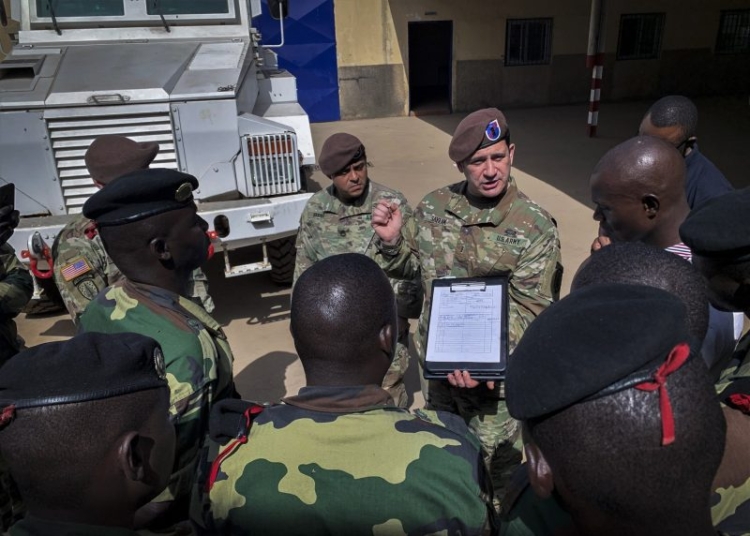The United States Army Logistics Advisor Team 1610, 6th Battalion, 1st Security Force Assistance Brigade, has delivered a three-week long Vehicle Maintenance and Recovery Course in Dakar, Senegal from March 2-21.
“We are excited that the Security Force Assistance Brigade has begun its work in Senegal. Their strategy of conducting engagements through persistent presence in-country improves outcomes, as it allows them to gain a better understanding of the needs and capabilities of the partner force,” said U.S. Army Col. Gwyn Carver, Defense Attaché, U.S. Embassy in Senegal.
“This will pay dividends for the Senegalese military, and just as importantly I know that taking on the challenge of working with a partner nation force as capable as Senegal’s will provide the SFAB with an invaluable experience for future deployments.”
The training, according to the US African Command (AFRICOM) will keep the Senegalese Army moving by able to recover a vehicle that breaks down or gets stuck, particularly as the country supports the United Nations Peacekeeping Operations.
The U.S. Army 1st SFAB advisors from Fort Benning provided advanced training on maintaining and recovering the Senegalese armored personnel carriers, the M36 Puma.
The Senegalese soldiers were also instructed on how to train their own operators without the US presence.
“Improving the logistics capabilities of our partners in the Senegalese Armed Forces to extend their operational reach is an essential task for USARAF,” said Col. Layton Dunbar, the U.S. Army Africa G4.
“The U.S. Army’s 1st SFAB Logistics Advisors did a tremendous job training our Senegalese partners and enhancing their Armed Force’s readiness through this security cooperation event.”
Since being deployed with AFRICOM, this was the 1st SFAB’s first advising mission and the first-ever employment of the new security force assistance brigades in Africa.
According to the US army, the SFAB concept is the answer to the growing need to carry out security force assistance with partners and allies while also building and maintaining readiness for Unified Land Operations.
By completing missions in Africa, 1st SFAB enabled a brigade combat team to focus on its core mission of developing and maintaining readiness for a near-peer threat. Prior to this allocation to Africa, the first, second and third SFABs previously deployed to U.S. Central Command and partnered with Afghan or Iraqi security forces.
“Our mission is about way more than just training maintenance and logistics. It’s really about building long-lasting partnerships and enhancing their skills in order to increase their capability and survivability during operations,” said Maj. Michael Pachucki, Logistics Advisor Company Commander, 1st SFAB.
Pachucki’s apparently specially selected and trained team of volunteers provided classroom instruction and hands-on training for preventative maintenance checks, vehicle recovery planning, winch operations, and standard operating procedures.
They worked alongside their Senegalese partners and were impressed by their passion and skill. “Every day the Senegalese were excited for training and utilized the hands-on practical exercises as an opportunity to showcase their previous experience with their newly learned skills. My team and I were truly impressed with their professionalism, experience, knowledge, and eagerness to continually learn,” Pachucki said.
The Senegalese soldiers told Pachucki they appreciated the training and requested more training on handling hazardous materials and how to efficiently distribute supplies and spare parts.
The coronavirus pandemic interrupted 1st SFAB’s operations in Africa. The unit is working with U.S. Army Africa and the U.S. Department of State to prepare for future security force assistance missions once conditions allow the advisors to return.











